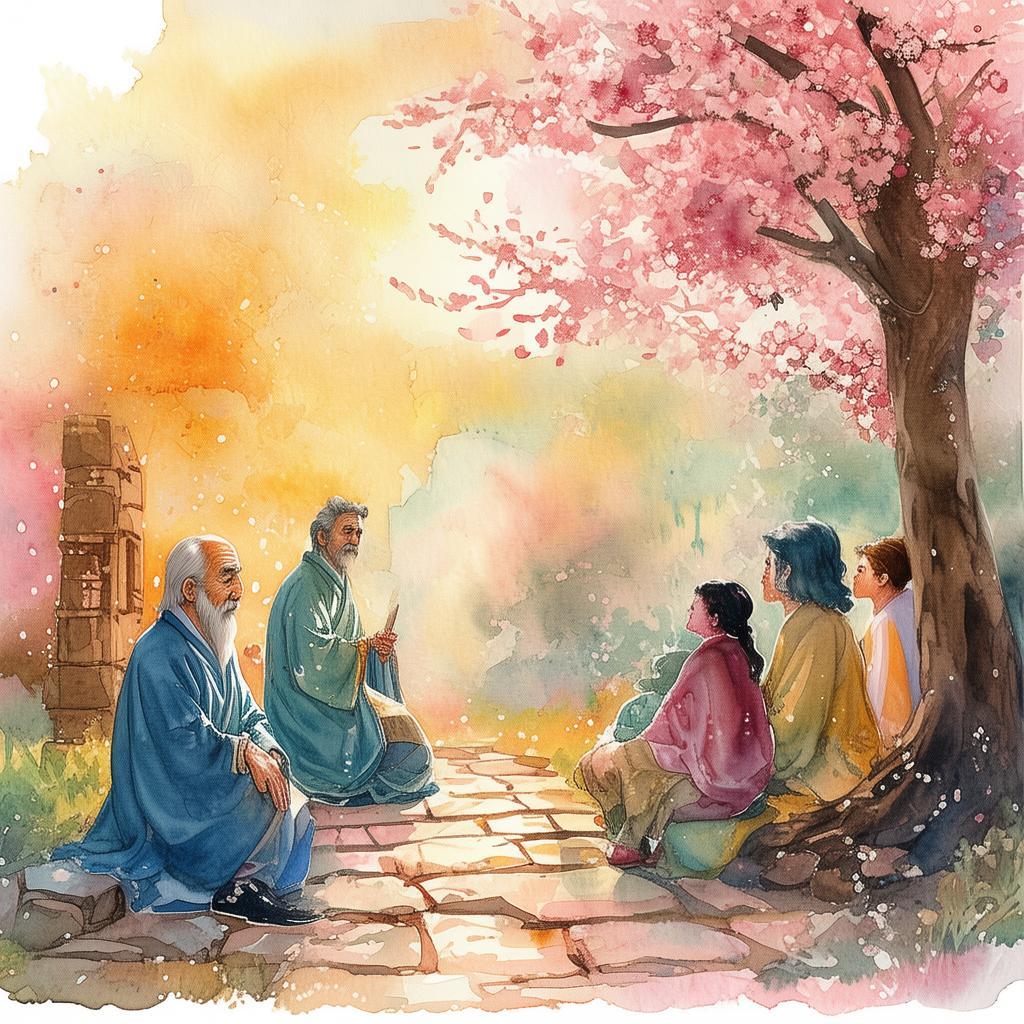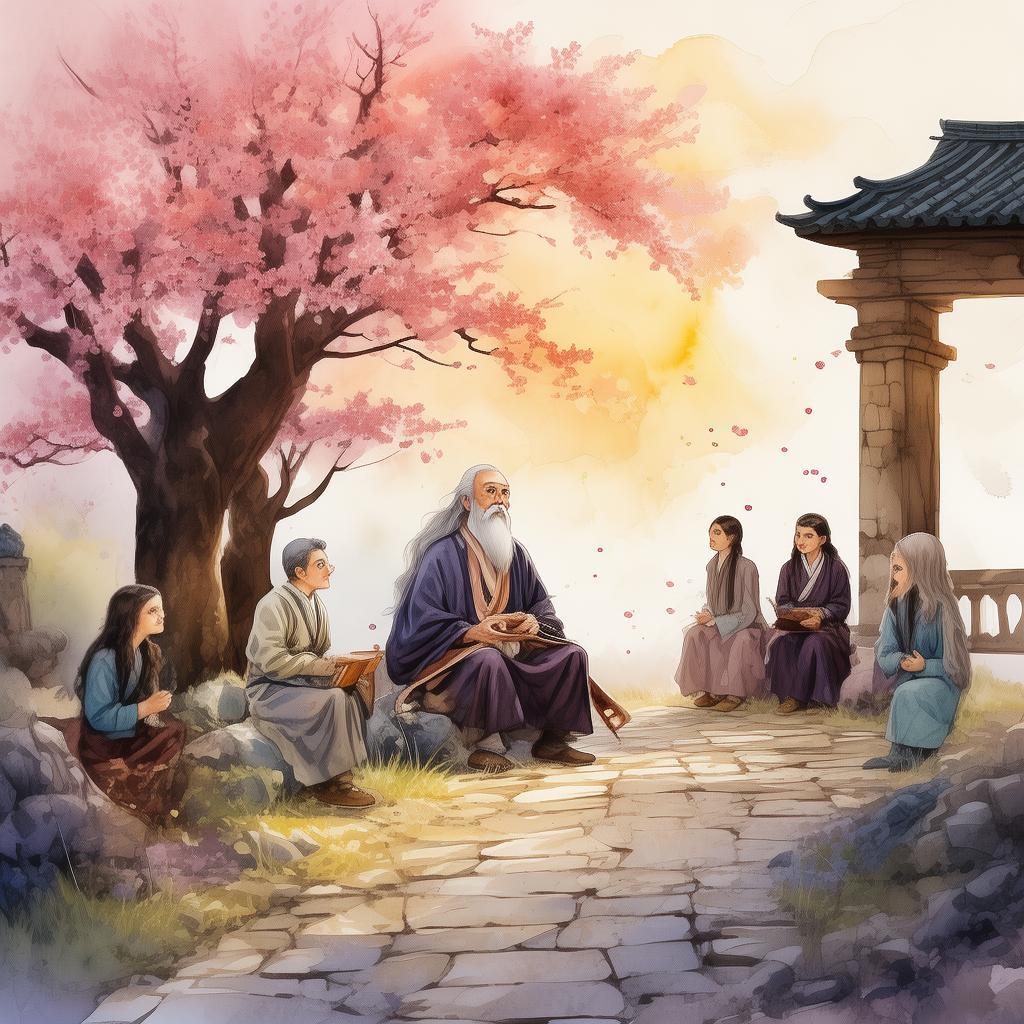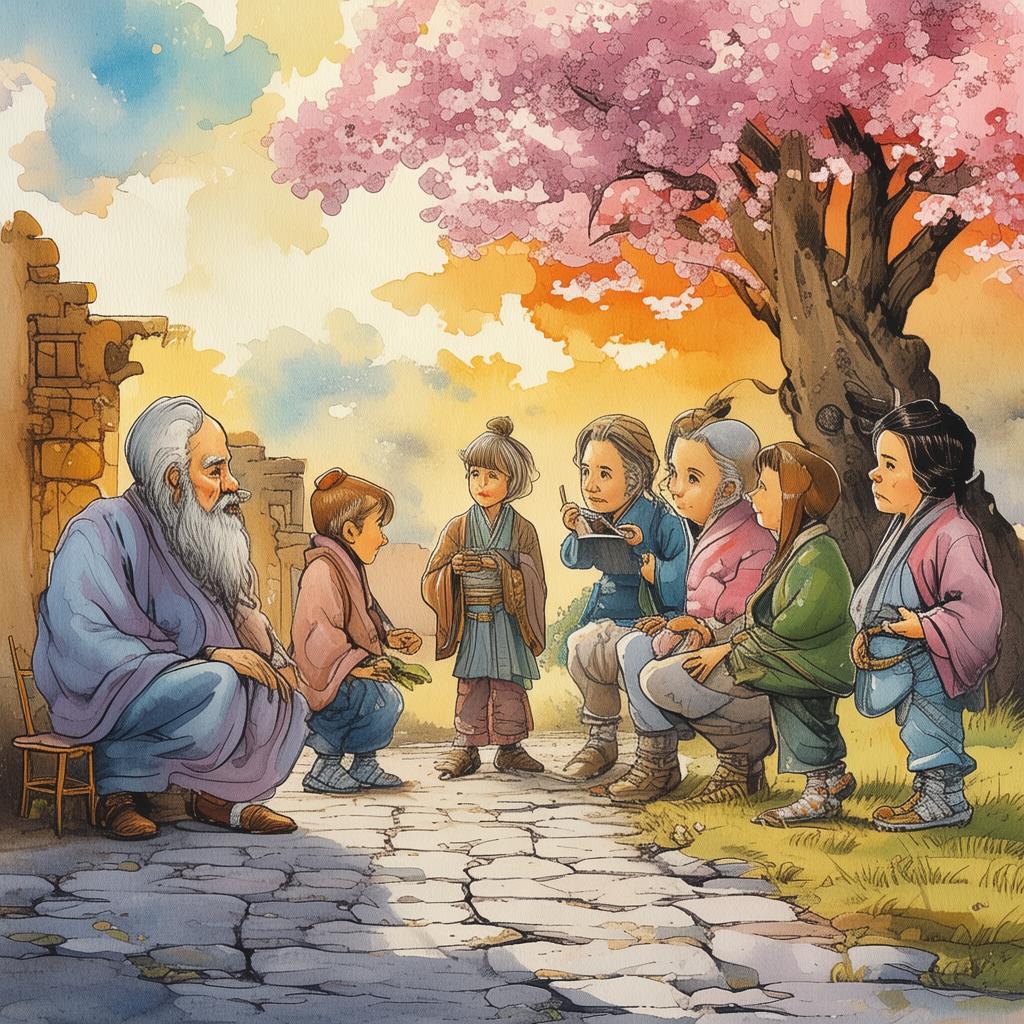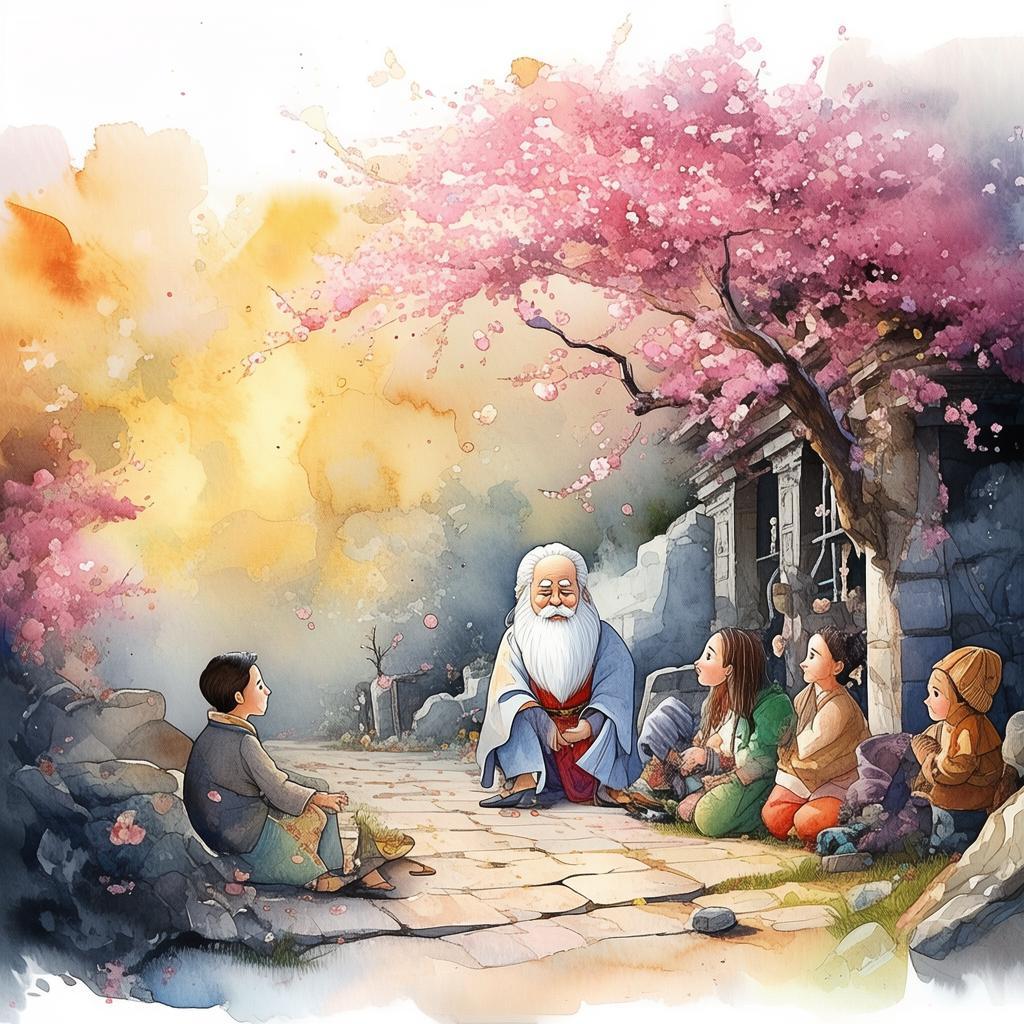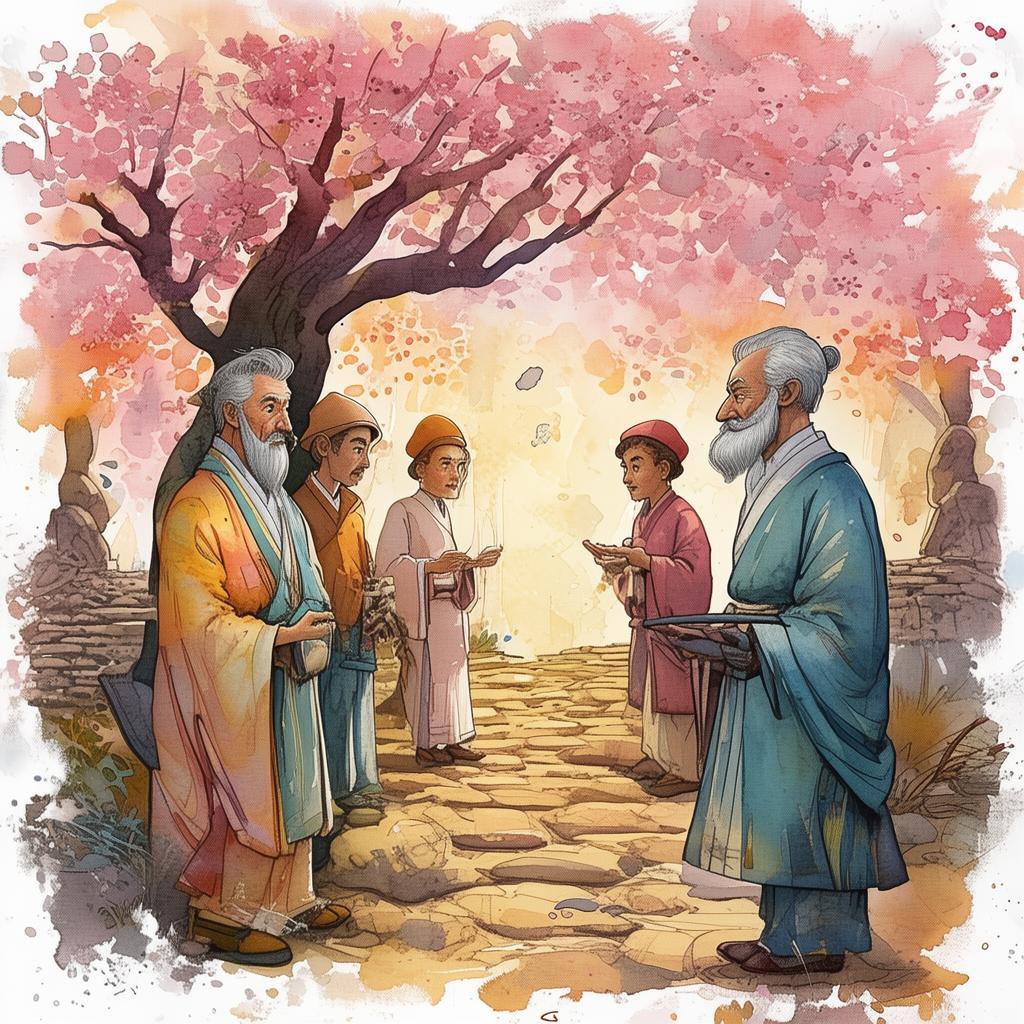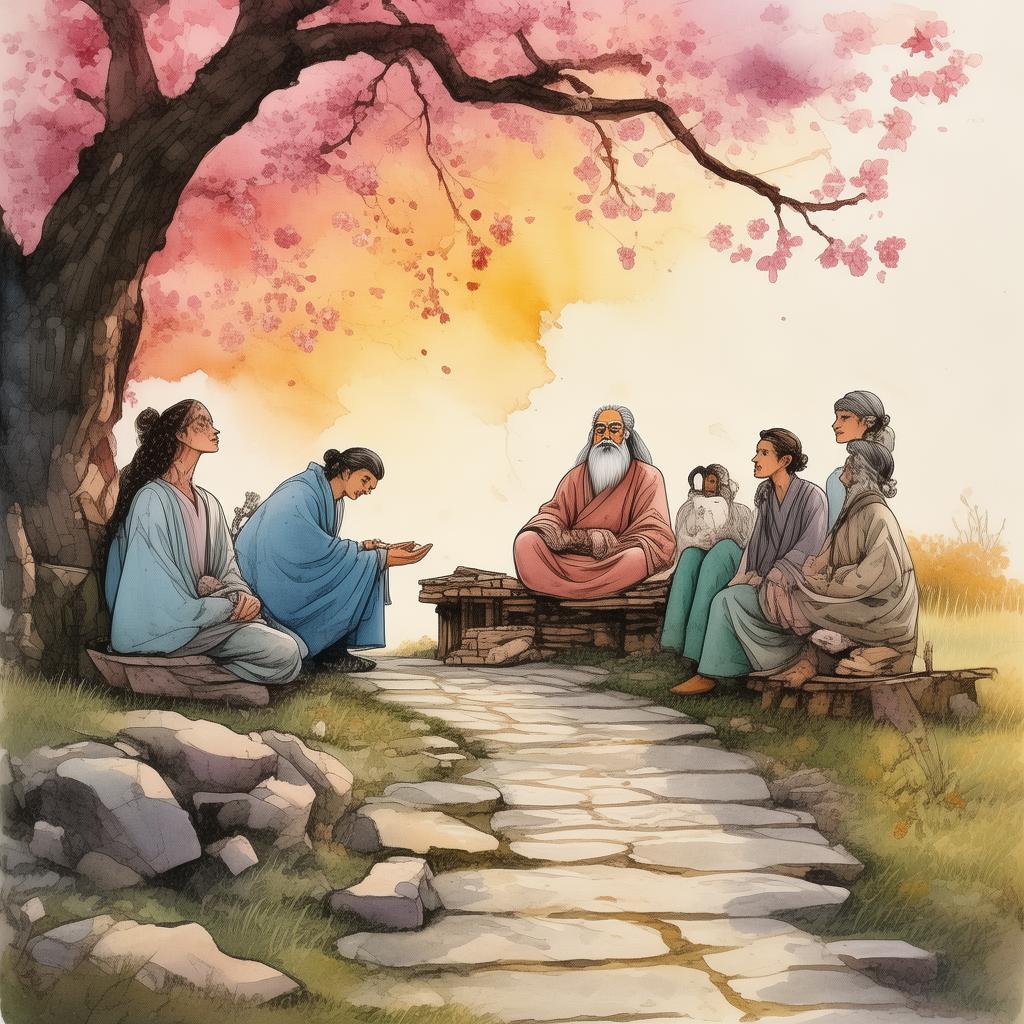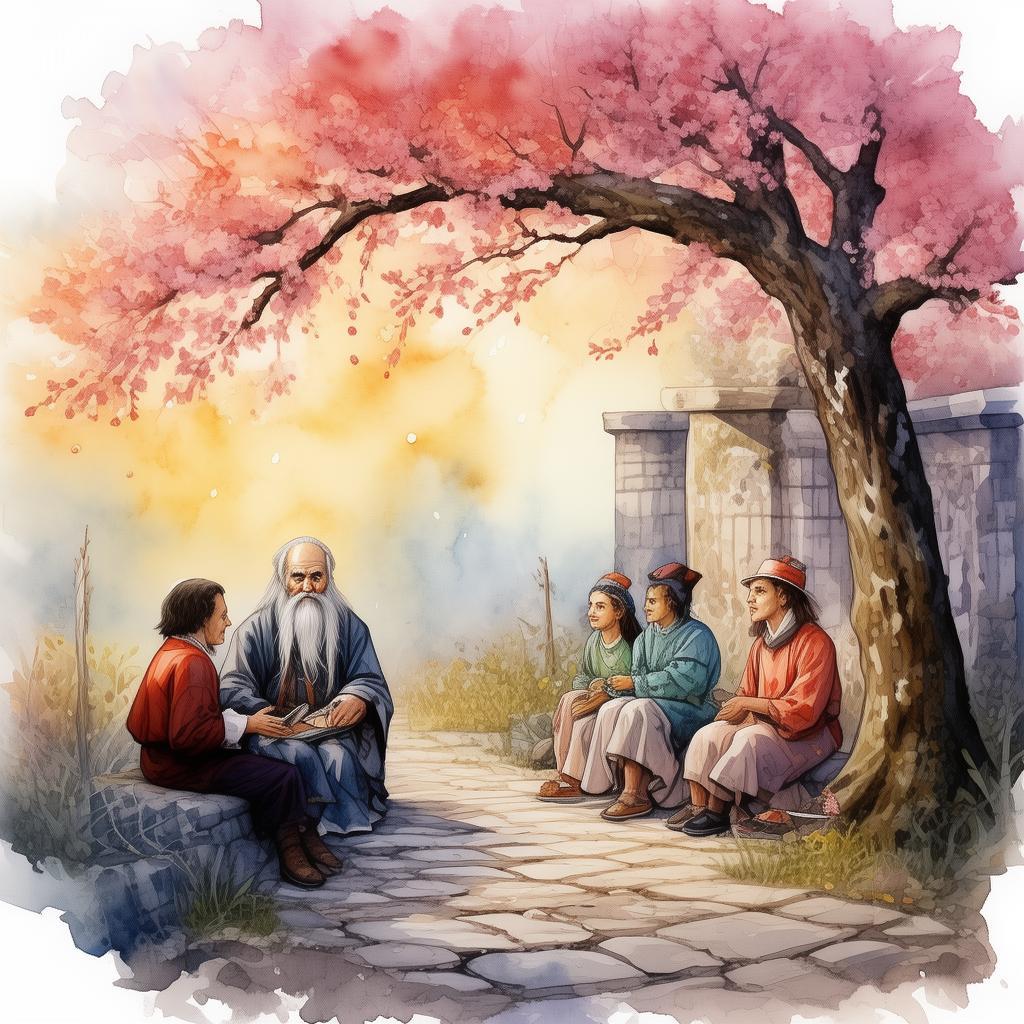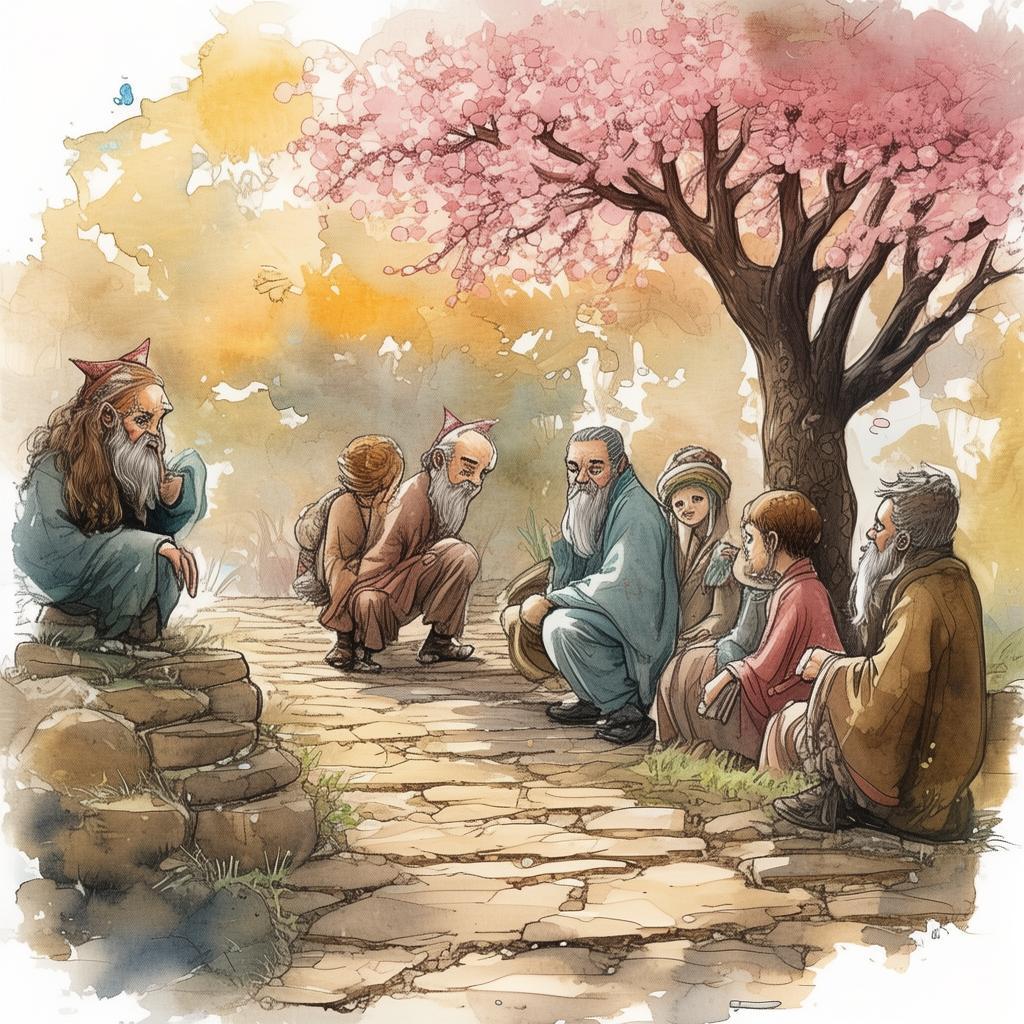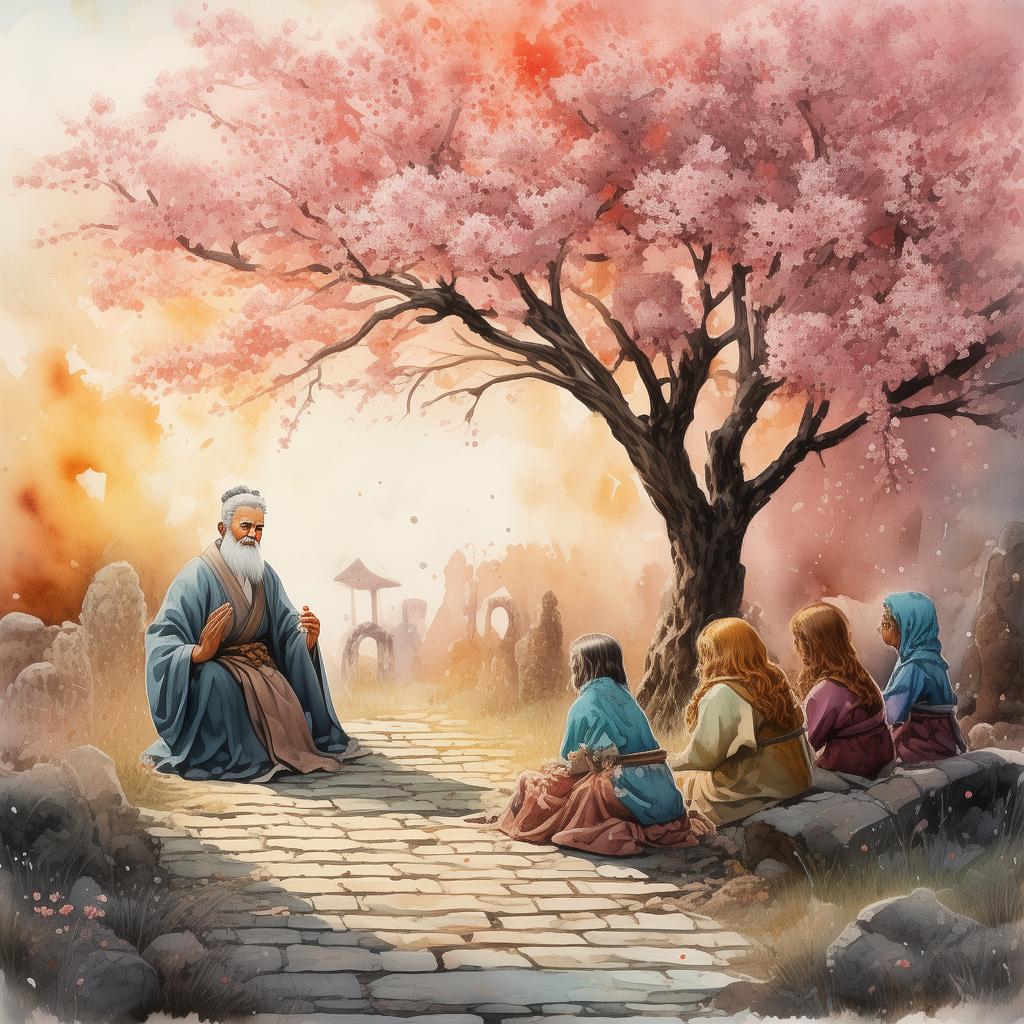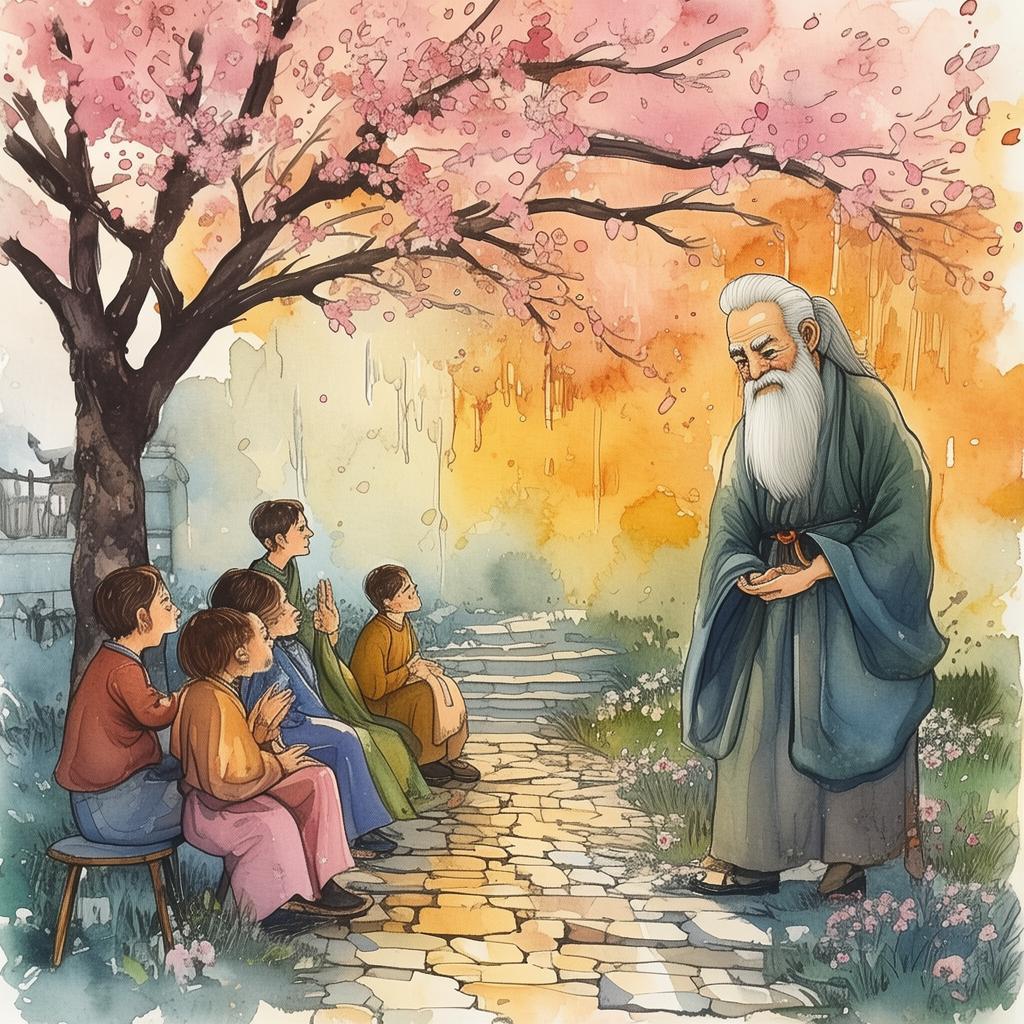The Time-Traveling Philosopher's Paradox
In the heart of the Tavern of Time, a place where the walls whispered secrets of the past and the future intertwined like the threads of a grand tapestry, there sat an old philosopher named Eudaimon. His eyes, deep and weary from contemplating the enigmas of existence, sparkled with an unquenchable thirst for knowledge. The tavern, a place where time itself was a currency, was a sanctuary for those who sought to unravel the mysteries of the universe.
One evening, as the sun dipped below the horizon, casting a golden glow upon the ancient wooden floor, Eudaimon ordered a round of the most precious of libations—the Time Wine. It was said that a sip of this drink could transport one through the ages, to witness the rise and fall of civilizations, the birth of stars, and the whispers of the universe itself.
As the wine flowed, Eudaimon found himself drawn to the tavern's most mysterious corner, where a peculiar clock ticked away the seconds with a rhythm that seemed to defy the very nature of time. The clock was unlike any other; it was adorned with symbols and runes that pulsed with an otherworldly light.
Intrigued, Eudaimon approached the clock and felt a strange energy emanating from it. "What is this clock?" he inquired of the tavern keeper, a wise old man named Chronos.
"The clock," replied Chronos, his voice a mix of awe and mystery, "is a portal to the ages. It can take you to any moment in time, but be warned, the paradoxes you may encounter are as dangerous as they are enlightening."
Ignoring the warning, Eudaimon reached out and touched the clock. In an instant, he was whisked away, his consciousness adrift in the void of time.
The first age he found himself in was the age of ancient Greece, where the great philosophers like Socrates and Plato debated the nature of reality. Eudaimon, now in the flesh of a young man, found himself in the presence of Socrates. The old philosopher noticed him and asked, "Who are you, young man?"
"I am Eudaimon," he replied, "a seeker of truth."
Socrates nodded, intrigued. "Then come, young Eudaimon, and join us in our discourse."
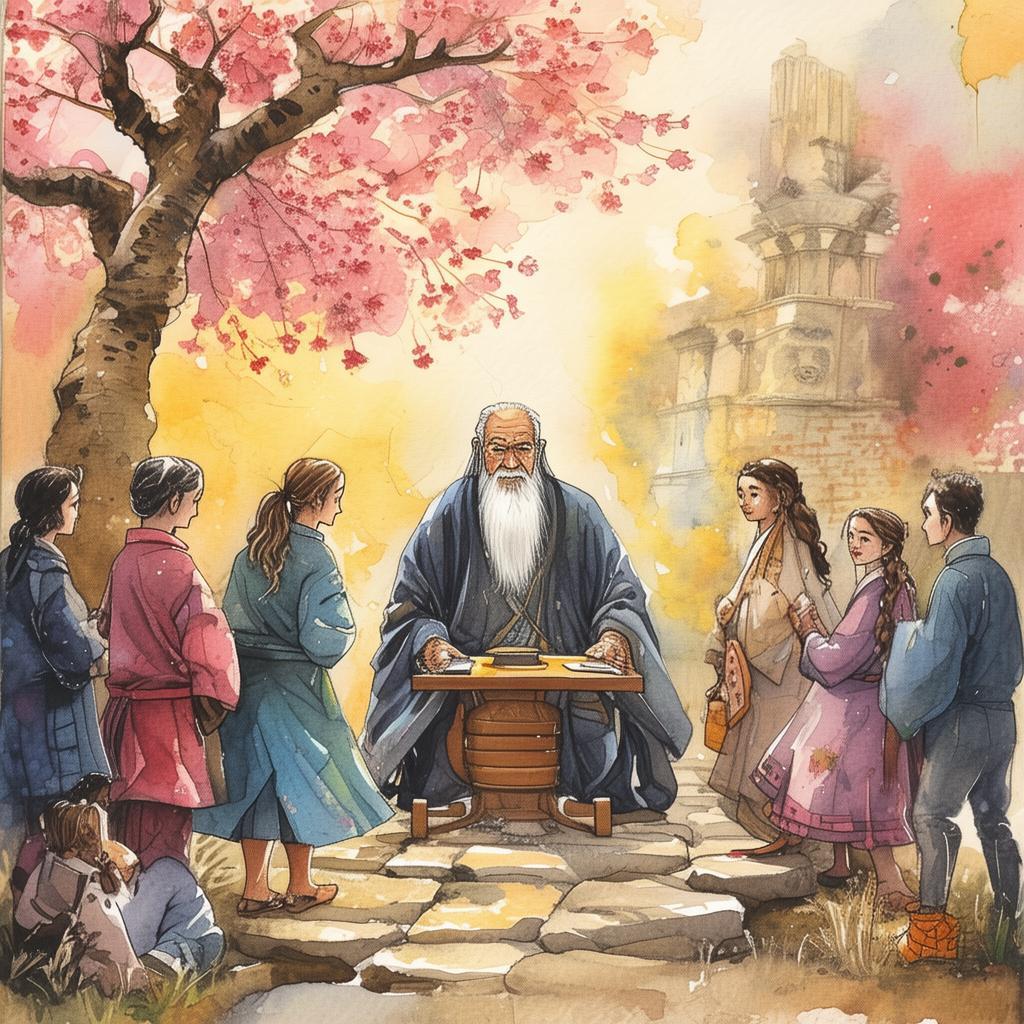
As they spoke, Eudaimon realized that his presence had already altered the course of history, for the young man he was now, was the one who would later become the great philosopher. The paradox was clear: if he had not been there, he would not have become the Eudaimon who was now there.
Shaken by this realization, Eudaimon's next journey took him to the Renaissance, where he encountered the great minds of the time, such as Leonardo da Vinci and Michelangelo. He watched as they painted masterpieces, built magnificent cathedrals, and explored the unknown.
Each journey through time only served to deepen the paradox. In the age of the Industrial Revolution, Eudaimon witnessed the birth of the steam engine and the transformation of society. In the age of the digital age, he marveled at the rise of the internet and the interconnectedness of humanity.
The paradox became his constant companion, a reminder of the delicate balance between the past, present, and future. He realized that his actions in the past had consequences in the present, and his presence in the present would shape the future.
Finally, Eudaimon returned to the Tavern of Time, his mind reeling from the paradoxes he had encountered. He sat down across from Chronos and confessed, "I have seen the future, and it is a paradox. How can I make a difference if my actions in the past are already predetermined?"
Chronos smiled, a knowing look in his eyes. "The paradox is the key, Eudaimon. It is not about changing the past or the future, but about understanding the present. By accepting the paradox, you can live in the moment and make choices that resonate with your true self."
Eudaimon nodded, understanding dawning upon him. He realized that the paradox was not a hindrance, but a gift—a reminder to live with purpose and intention.
From that day forward, Eudaimon's life changed. He no longer lived in fear of the paradox, but embraced it as a guide. He used his knowledge of the ages to inspire and educate, to build a better future for all.
The Tavern of Time, with its clock that defied the very nature of time, remained a constant in his life. It was there that Eudaimon found solace and inspiration, a place where the past, present, and future coexisted in perfect harmony.
And so, the story of Eudaimon and the Time-Traveling Philosopher's Paradox became a legend in the Tavern of Time, a tale of a man who learned to navigate the paradoxes of time and live a life of purpose and meaning.
✨ Original Statement ✨
All articles published on this website (including but not limited to text, images, videos, and other content) are original or authorized for reposting and are protected by relevant laws. Without the explicit written permission of this website, no individual or organization may copy, modify, repost, or use the content for commercial purposes.
If you need to quote or cooperate, please contact this site for authorization. We reserve the right to pursue legal responsibility for any unauthorized use.
Hereby declared.
